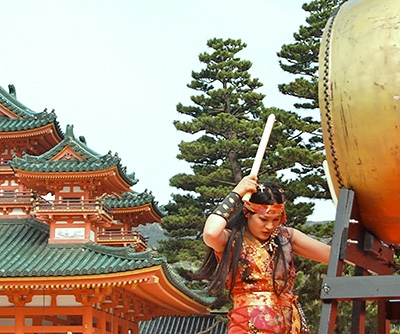Jennifer Milioto Matsue, associate professor/director of interdisciplinary programs
Jennifer Matsue needed a book on Japanese music that would challenge her students, but not alienate them with excessive jargon and complicated terminology. When she couldn’t find one, she wrote her own.
Focus: Music in Contemporary Japan, released this year by Routledge, examines a wide range of music performed in Japan today, from traditional to popular styles, through the lens of adaptation.
“Japanese have long been particularly adept at importing different cultural expressions—language, religion, arts—and making them their own,” said Matsue, an ethnomusicologist who specializes in modern Japanese music and culture. “This book explores how Japanese express a unique identity through adopting and adapting imported music.”
One of many examples of this is the koto, a long zither that originates in China. The Japanese, Matsue explained, absorbed the instrument into their culture, making it quite a bit longer than the Chinese variety and tuning it differently. The position in which the koto is played (seated on the floor vs. on a stand) and the material the strings are made from also differ.
This theme of adaptation runs throughout the book, which is divided into three parts.
“Part one explores how broader Japanese cultural characteristics inform the ways music is performed and sounds. Part two really tries to understand why Japanese music sounds the way it does, first detailing major musical elements and then looking at what happens to Japanese musical elements in the 20th century, when Japanese and western music combines,” Matsue said. “The third part is an ethnographic study of percussion, both classical and modern ensemble taiko drumming, in the city of Kyoto.”
She hopes readers, and students, will gain an understanding and appreciation of Japanese music.
“Music is important in every culture, though it might mean something different in each. Within Japan, it is an important foci through which Japanese negotiate their complicated modern identity,” Matsue said. “Throughout history, Japanese have adapted musics from abroad to create a unique identity, which is beautifully illustrated through music.”
Learn more about Matsue's book, which comes with a CD of Japanese music.


